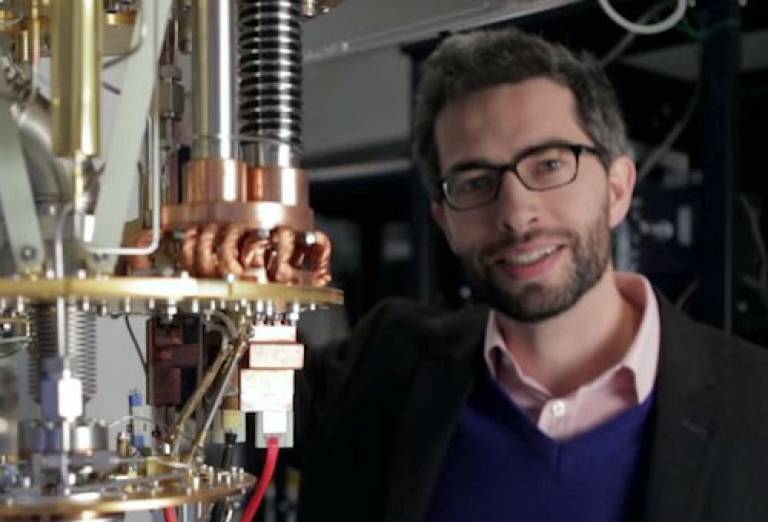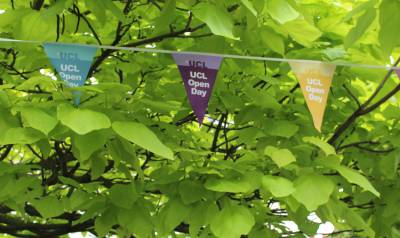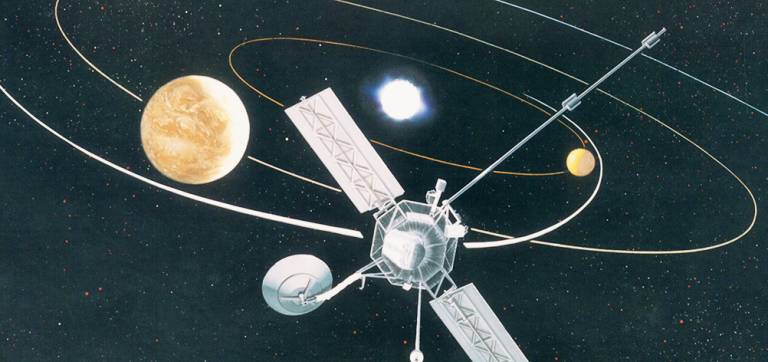Professor John Morton awarded the 2016 Raymond and Beverly Sackler Prize
8 December 2016

Professor John Morton, LCN Professor in Nanoelectronics and Nanophotonics, has been awarded the prestigious 2016 Raymond and Beverley Sacker International Prize in Physical Science for his 'outstanding and imaginative applications of magnetic resonance to quantum information storage and processing'.
The Raymond and Beverly Sackler International Prize in the Physical Sciences was established through the generosity of Tel Aviv University Governors Dr Raymond and Mrs Beverly Sackler, visionary patrons of the sciences at Tel Aviv University. The Sackler Prizes are intended to promote originality and excellence of research in the field of Biophysics, Chemistry and Physics. They are administered by Tel Aviv University through an advisory committee that includes the President and Rector of TAU as ex-officio members.
The prize is awarded alternatively in the fields of Chemistry and Physics on a yearly basis. This year the prize is for the field of Chemistry, specifically 'Magnetic Resonance'. The prize will be awarded to Professor Morton at Tel Aviv University during a conference that will be held in honour of the Sackler Prize laureates.
Professor Morton jointly shares the 2016 prize with two other researchers, Professor Guido Pintacuda from Ecole Normale Supérieure de Lyon and Professor Charalampos Babis Kalodimos from the University of Minnesota (more information is on the Tel Aviv University website).
Professor Morton's research is focused around the magnetic moments of nuclei, atoms and molecules in condensed matter. These exhibit strongly quantum behaviour, with discrete energy levels and weak coupling to other degrees of freedom. His team study the dynamics of these systems, principally using magnetic resonance.
Professor Morton has made a sequence of seminal contributions in the application of magnetic resonance to quantum information processing. Magnetic resonance is widely seen today as a key tool for emerging quantum technologies thanks to his ground-breaking experiments.
In particular, Professor Morton has pioneered the combined use of electron and nuclear spins in both organic and inorganic materials and devices to create 'hybrid' spin systems, which have very broad applications in quantum technologies. He has a leading role within the UK National Quantum Technologies Programme and is the director the UCL Quantum Science and Technology Institute.
On the announcement of this award Professor Morton said "It is a great honour and surprise to receive the Sackler Prize, and a humbling experience for me, especially given the level of outstanding science being performed in this field around the world. So far in my career I have had the good fortune to work with many brilliant scientists, from PhD students to international group leaders - to me such cooperative research is the most rewarding and enjoyable part of working in experimental science, and this award is a reflection of the fruitfulness of those collaborations."
Links
- More Information on Professor Morton's research
- UCL Quantum Science and Technology Institute
- London Centre for Nanotechnology
- Tel Aviv University Announcement
 Close
Close




